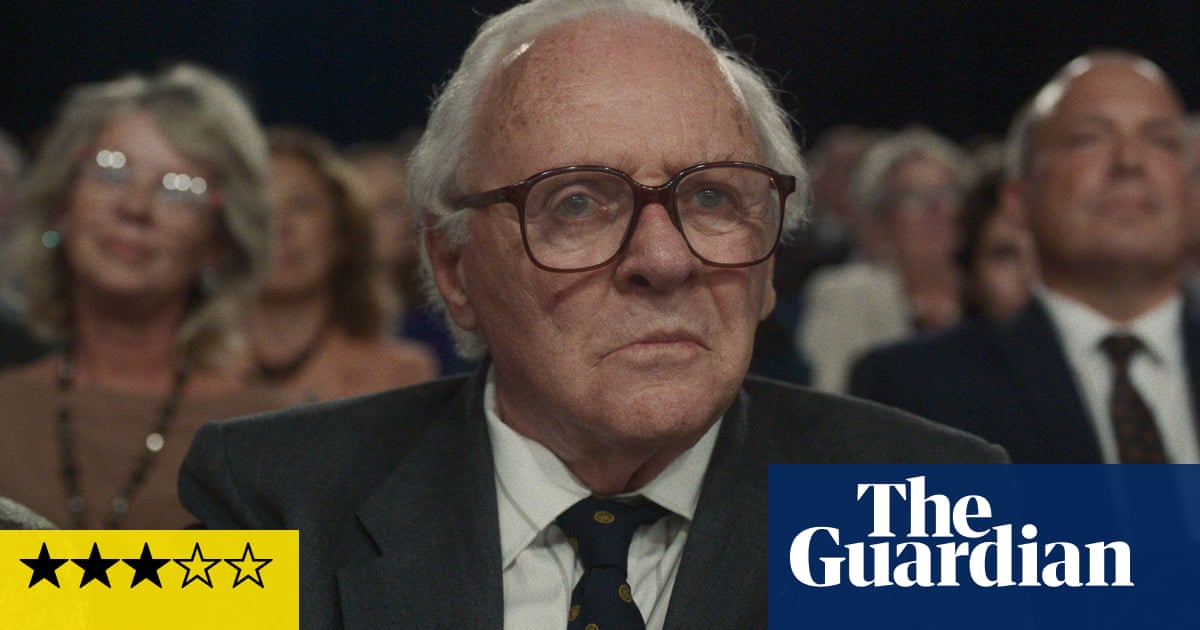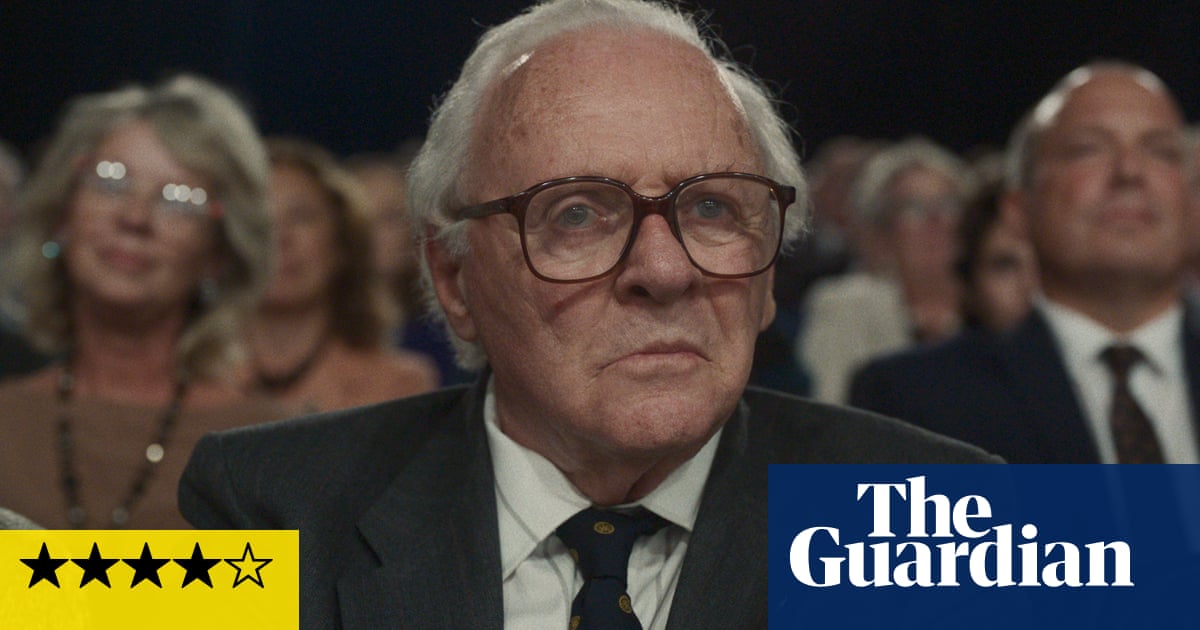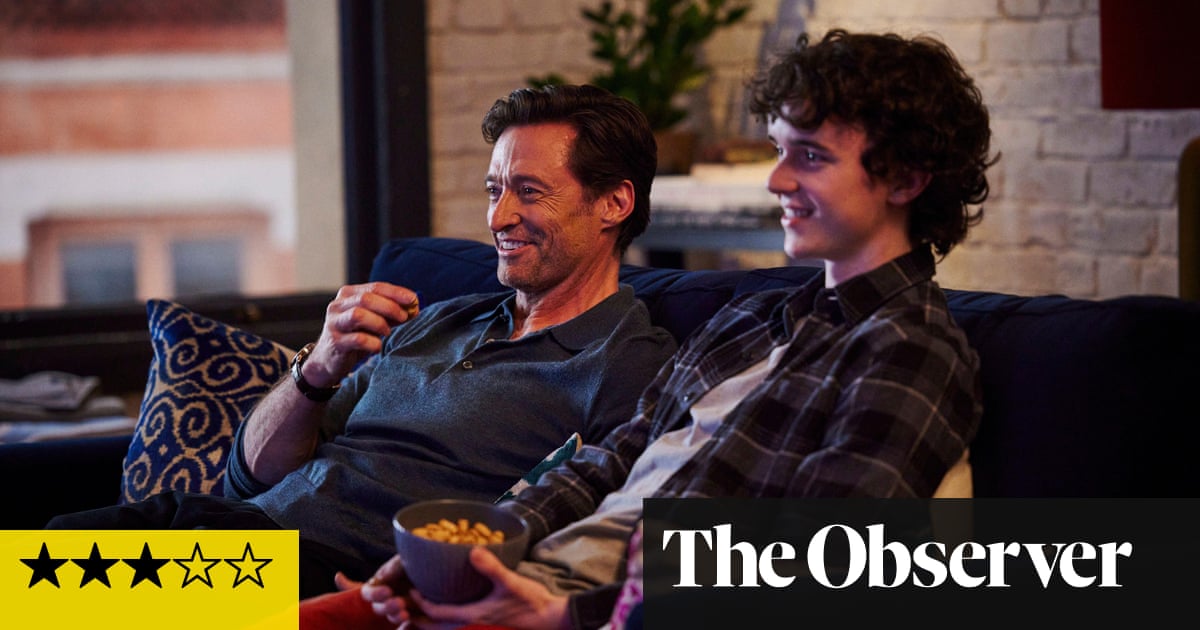
et me not be mad, not mad, sweet heaven!” says King Lear, a plea which is overwhelmingly sad because it can never be heard by anyone with the power to grant it. Anthony Hopkins, who played Lear in Richard Eyre’s production for the BBC, now delivers another performance as an ailing patriarch with a favourite daughter and nowhere to stay, in a film directed by Florian Zeller, and adapted by Christopher Hampton from Zeller’s own award-winning stage play. There is unbearable heartbreak in this movie, for which Hopkins has become history’s oldest best actor Oscar-winner, and also genuine fear, like something you might experience watching Roman Polanski’s Repulsion or M Night Shyamalan’s The Sixth Sense.
Hopkins is Anthony, a roguishly handsome and cantankerous old widower, a retired engineer who lives on his own in a spacious, well-appointed apartment in west London, receiving regular visits from his affectionate and exasperated daughter Anne, who is played at the highest pitch of intelligence and insight by Olivia Colman.
But things are very wrong, because Anthony has dementia. He is subject to mood-swings and fits of temper connected with his sudden terror at not being able to work out what is going on. His behaviour has already caused his existing carer to quit, and now Anne tells him that he simply has to get on with the new one, Laura (Imogen Poots). This is because Anne, after the end of her marriage to Paul (Rufus Sewell) – to whom we will be introduced later – has now at last found a new partner and the opportunity for happiness that she deserves. She is going abroad with him, and can’t look after Anthony any more.
What is deeply scary about The Father is that, without obvious first-person camera tricks, it puts us inside Anthony’s head. We see and don’t see what he sees and doesn’t see. We are cleverly invited to assume that certain passages of dialogue are happening in reality – and then shown that they aren’t. We experience with Anthony, step by step, what appears to be the incremental deterioration in his condition, the disorientating time slips and time loops. People morph into other people; situations get elided; the apartment’s furniture seems suddenly and bewilderingly to change; a scene which had appeared to follow the previous one sequentially turns out to have preceded it, or to be Anthony’s delusion or his memory of something else. And new people, people he doesn’t recognise (played by Mark Gatiss and Olivia Williams) keep appearing in his apartment and responding to him with that same sweet smile of patience when he asks what they are doing there. The universe is gaslighting Anthony with these people.
Anthony is of course different from Lear in one particular: he doesn’t know what is happening to him, or has happened. Things are too far gone. But Hopkins shows how an awareness of his previous existence is still there at a deeper, almost physical level, sometimes resurfacing in his devastatingly contrite little apologies to Anne. And one scene with Paul in which Anthony becomes whimperingly afraid shows us that there are things that Anne doesn’t know about Anthony’s life.
Hopkins’s final speech to Williams is the one that reduced me to a blubbering mess. But the most subtly poignant moments are those in which Anthony will laugh – a flash of his old, roguishly charming self – and Anne and his carer will supportively laugh along with him. To some degree, it is a nervous laugh because Anne knows just how easily his mood can turn, and it is also a professional carer’s laugh, and a strained tragicomic laugh, the laugh you do instead of crying. But it’s also a perfectly genuine kind of laugh and, in its way, an urgent, shared gesture of faith in the person that Anthony was and occasionally still is.
The Father has something of Michael Haneke’s Amour in its one-apartment setting, and also something of Alan Ayckbourn’s 1985 stage-play Woman in Mind, in which the heroine retreats from reality. Its effects are essentially theatrical – but they are powerfully achieved, and the performances from Hopkins and Colman are superb. It is a film about grief and what it means to grieve for someone who is still alive.












